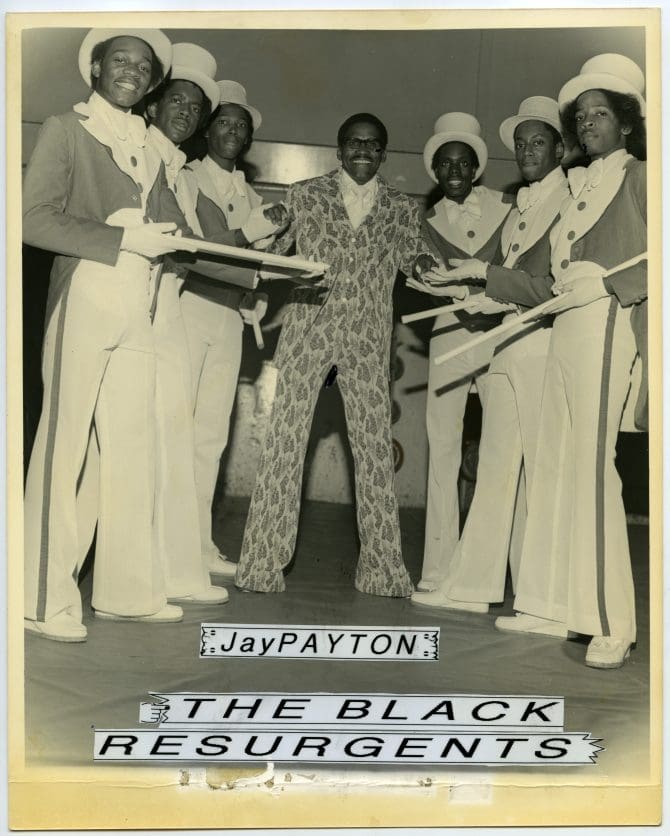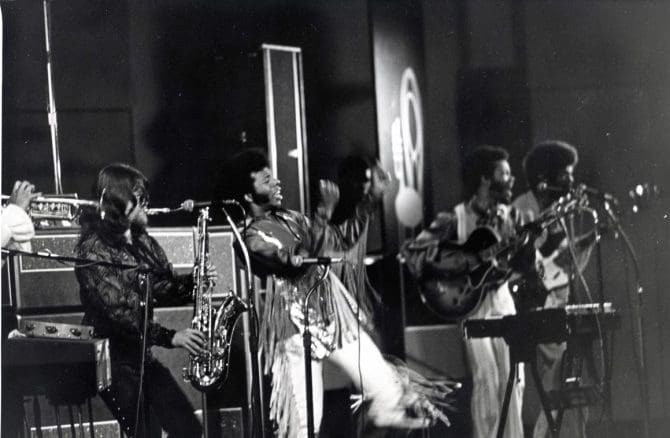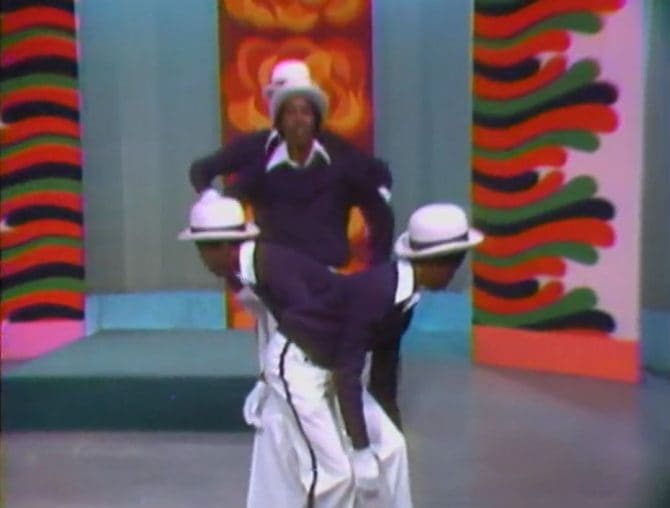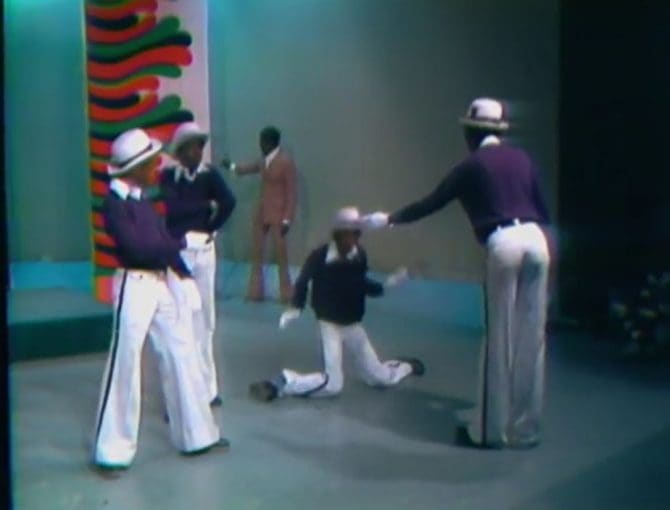
On Saturday, October 23, the African American Museum & Library at Oakland hosts a virtual program celebrating the 50th Anniversary of the Black Resurgents, Oakland boogaloo pioneers. Current members—Larry Robertson, Ricky Wilson-Gantt, William Randolph III, Greg Gaineslanstet, and William A.P. Randolph V— join DJ Davey D. Cook for a roundtable discussion featuring live performances, special guests, and unseen archival film clips.
The late 1960s saw an explosion of dance styles arise from innovations in soul. For many in the Bay Area, Sly Stone’s radio shows on KSOL (K-SOUL) typified the mix of influences: sounds from the Black church fused freely with those from soul clubs and psychedelic rock. Distinct street dance moves, later to be called the funk styles of boogaloo and the robot, evolved in this new musical landscape. Oakland’s boogaloo dancers adopted freestyle techniques, such as the hard pose and the dime stop, that matched the rhythmic and percussive pulse of funk’s syncopated bass lines.

Dancers also found voice in the social and cultural currents of a post-civil rights era. Dance historian Traci Bartlow recalls witnessing the Oakland boogaloo performed alongside Afro-Haitian dance and other Black dance forms championed by the Black Arts Movement. As the Black Power Movement was reshaping popular culture, boogaloo dancers developed a rich lexicon of movement in step with the revolution.
Black Resurgents’ founding member William Randolph remembers seeing his first boogaloo dance at a New Years’ Eve Party hosted by the Pointer Sisters in 1965. In 1971, as students at Elmhurst Junior High School, the Black Resurgents joined a fertile scene that included both West Oakland and East Oakland boogaloo groups. At Castlemont High School, the Black Resurgents, along with the Black Messengers, dominated the stage. West Oakland groups S.S. Enterprise and Derrick and Company were centered around McClymonds High School.
As recounted by writer Eric K. Arnold, “In the artform’s early years…there was little to no interaction between boogaloos on either side of town, so each area developed its own style.” These developments quickly spread throughout the city by way of local talent shows and competitions at rec centers like Mosswood Park and De Fremery Recreation Center. Bartlow describes boogaloo tournaments happening “on the blocks, in the recreation centers, the courtyard at public schools. Or even in living rooms with the furniture pushed back.”


The Black Resurgents refined their skills dancing at Black Panther Party rallies, with Parliament-Funkadelic at the Oakland Coliseum, and performing with a young Dwayne Wiggins (of Tony! Toni! Toné). In 1976, they took their talents on the Jay Payton Show, Oakland’s very own Soul Train. This footage, part of the Jay Payton Papers at AAMLO, shows the Black Resurgents’ signature style combining elements from boogaloo and the robot.
The funk-based boogaloo moves eventually adapted and evolved as they moved across California. New styles become known as the Robottin’ in Richmond, Strutting in San Francisco, and the Strikin dances of Sacramento. Together with other original funk style practitioners, Randolph is now working to keep the memory of this Bay Area street dance history alive. Earlier this year, he spoke with KQED Arts about the need to “revive boogaloo, maintain its cultural traditions, and pass them on to a new generation–bridging the gap between boogaloo, pop-locking and contemporary dance forms like turf dancing.”
To learn more about the history of Oakland boogaloo and the Black Resurgents, check out Oakland Boogaloo: The Funk-based Freestyle Dance that Helped Define the Town’s Culture on KQED Arts
Resources:
- Jay Payton Papers, African American Museum & Library at Oakland, Oakland Public Library.
- Black Artists in Oakland / Jerry Thompson
- Underground Dance Masters: Final History of a Forgotten Era / Thomas Guzman-Sanchez
- Party Music : The Inside Story of the Black Panthers' Band and How Black Power Transformed Soul Music / Rickey Vincent
- Total Chaos: The Art and Aesthetics of Hip-Hop / Jeff Chang
- Rap and Politics : a Case Study of Panther, Gangster, and Hyphy Discourses in Oakland, CA (1965-2010) / Lavar Pope
- America Dancing : From the Cakewalk to the Moonwalk / Megan Pugh
- "Oakland's original boogaloos speak out, in hopes of reclaiming their culture" The Oaklandside
- "Reclaiming the Legacy of Oakland’s Boogaloo Dance Culture" KQED Arts


Add a comment to: Boogaloo Originals: The Black Resurgents at 50